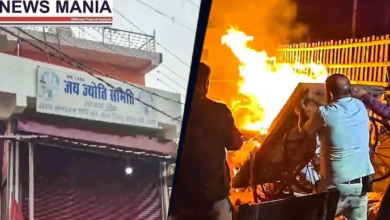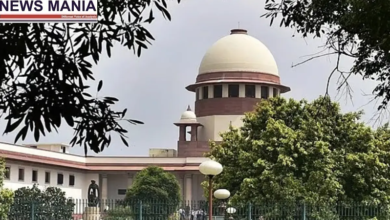Gujarat To Supreme Court On Freedom Of Religion
The Gujarati government has informed the Supreme Court that the right to practice one’s religion freely does not include the right to convert others, and it has asked the high court to lift a High Court stay on a state law provision requiring the district magistrate’s prior approval for conversion through marriage.
The Gujarat High Court stayed the application of Section 5 of the state government’s Freedom of Religion Act of 2003 through orders issued on August 19 and August 26, 2021.
The state government claimed in its affidavit that it had filed an application to have the HC stay lifted in order to put the provisions against religious conversions in Gujarat by coercion, allurement, or fraudulent means into effect. This was in response to a PIL brought by advocate Ashwini Upadhyay.
The state government asserted that the constituent assembly debated the meaning and intent of the word propagate in great detail and that its inclusion in Article 25 of the Constitution was only approved after it was made clear that the fundamental right under Article 25 would not include the right to convert.
It claimed that the constitutionality of the Gujarat Freedom of Religion Act, 2003, as well as the Madhya Pradesh Dharma Swatantraya Adhiniyam, 1968, and the Orissa Freedom of Religion Act, 1967, which are pertinent pari materia (on the same subject), was contested before a Constitution Bench in 1977.
This Court had ruled that fraudulent or induced conversion violates a person’s right to freedom of conscience in addition to interfering with public order, so the State had every right to regulate or impose restrictions on it.
The High Court, it said, had overlooked the fact that by preventing section 5 of the Act of 2003 from taking effect, it effectively rendered the Act’s entire purpose moot.
The state administration said that similar to Upadhyay’s PIL, the appeal against the High Court’s ruling similarly largely address the problem of forced, coerced, or fraudulent religious conversions.
It stated that Section 5 of the Act of 2003, which is in fact an enabling provision enabling a person to get converted from one religion to another of his own volition, has been suspended by the High Court via the challenged interim orders.
The steps outlined in Section 5 are believed to be safety measures to guarantee that the process of renunciation of one religion and adoption of another is genuine, voluntary, legitimate, and free from any coercion, allurement, or fraudulent means.
The top court had stated on November 14 that coerced religious conversion may endanger national security and restrict people’s freedom of religion.
It had requested that the Center intervene and take genuine action to address the very serious problem.
If proselytization through trickery, seduction, and intimidation is not stopped, the court had previously issued a warning that a very difficult situation would develop.
If the allegation of a religious conversion is proven to be accurate and true, it would be a very serious matter that could ultimately affect both the citizens’ freedom of religion and conscience as well as the security of the country.
It had requested a list of steps to stop the practice from Solicitor General Tushar Mehta.
Upadhyay has asked the Center and the states in his PIL for guidance on how to take strict action against fraudulent religious conversion that is intimidated, threatened, and deceitfully lured through gifts and monetary benefits.
On September 23, the top court requested comments on the plea from the Centre and others.
News Mania Desk






